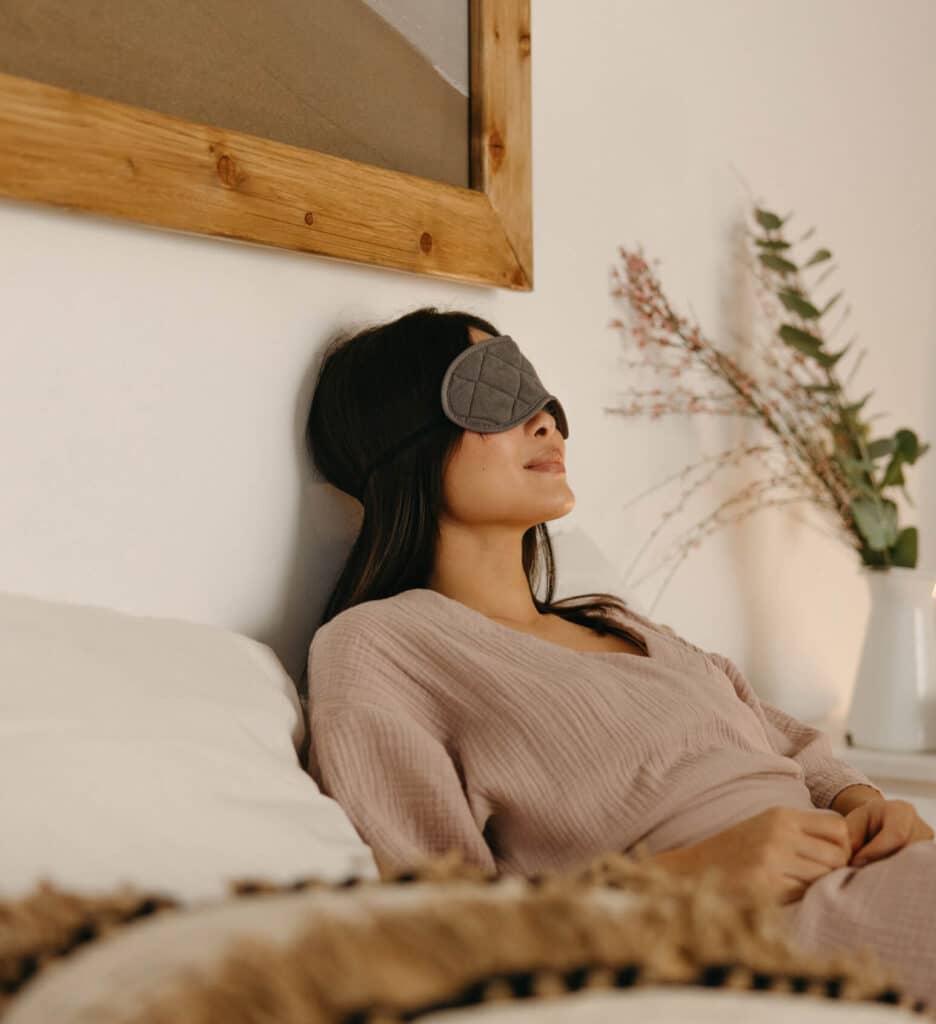We’ve all had those nights when you just can’t fall asleep no matter what you do. Your mind won’t stop racing and your body won’t relax as you watch the hours tick by.
Equally troubling, maybe you do fall asleep, but you often wake up in the middle of the night, check the clock hoping that it’s morning…and see that it’s only 3:00 AM.
Sometimes we believe we wake up because we need to use the bathroom, but is that truly what causes it? In most cases, no.
The Real Reason You’re Waking Up at Night
Nighttime waking is often linked to cortisol and blood sugar dysregulation. High cortisol levels and drops in blood sugar during the night can trigger awakening around 3 AM, making it difficult to stay asleep. That’s why balancing cortisol and blood sugar is key to restoring healthy sleep.
You’re not alone in this. The National Institutes of Health reports:
“About 50 to 70 million Americans have sleep disorders, and 1 in 3 adults do not regularly get the recommended amount of uninterrupted sleep they need to protect their health.”
This matters because restorative sleep is just as important to your health as nutrition and exercise.
Why Sleep Matters for Your Health
Better sleep improves:
- Energy and physical recovery
- Mental clarity and focus
- Mood and emotional balance
- Immune function and vitality
Poor sleep also drives overeating and calorie cravings, while raising insulin levels. Over time, this can increase the risk of diabetes and heart disease.
Studies also show we eat many more calories following a night of poor sleep.
From our own lives, we (Jamie and Ashlee) have learned to prioritize sleep—even if it means missing a run or workout class. The difference has been undeniable: improved mood, less brain fog, better metabolism, increased HRV, lower anxiety, and yes—we’re even nicer to our loved ones.
Common Causes of Poor Sleep
There’s always an underlying reason behind sleep issues. Common causes include:
- Cortisol dysregulation
- Blood sugar imbalances
- Stress and anxiety
- Hormonal changes
- Gastrointestinal issues
- Sleep environment or habits
The common thread? Nervous system health.
When the nervous system is disrupted, it creates a cycle of insomnia and fatigue. If we don’t rest well during the day, we don’t sleep well at night.
Whole-Person Approaches to Better Sleep
At Faithfully Guided, our goal is to incorporate healing practices that break the cycle of poor sleep and restore balance.

1. Christian Counseling & Mind-Body Techniques
Addressing the underlying emotional, psychological, and stress-related root causes helps regulate the nervous system. We use tools such as story-informed trauma care, cognitive behavioral therapy (CBT), Brain Spotting, EMDR, and somatic work to reduce anxiety and support parasympathetic activation.
Grounding techniques like breathwork, mindfulness, and vagal nerve stimulation also improve sleep and boost energy naturally.
2. Functional Nutrition & Lifestyle Support
The gut has a direct impact on sleep quality. Functional medicine providers may recommend nervous-system-supporting nutrients like magnesium, B-vitamins, and adaptogens such as ashwagandha and holy basil.
Lifestyle shifts also matter:
- Incorporate gentle daily movement
- Limit screen time before bed
- Maintain a regular sleep schedule
- Balance macronutrients


3. Functional Tests
If sleep struggles continue, functional medicine testing can help uncover what’s driving them. Hormone panels may reveal imbalances in cortisol, estrogen, or thyroid function, while other tests can identify blood sugar issues, gut imbalances, or nutrient deficiencies. These insights allow your provider to address the root causes of nervous system dysregulation and build a more targeted plan for restoring restful sleep.
Don’t Sleep on Your Sleep Health
Restorative sleep is foundational to whole-person health. If you’re ready to experience more whole-person care, inquire about becoming a client or schedule an appointment through your client portal.
As Proverbs 3:24 reminds us:
“When you lie down, you will not be afraid; when you lie down, your sleep will be sweet.”
Wishing you abundance (and restful sleep),
Ashlee Seek & Jamie Schofield
Co-Founders & CEOs





